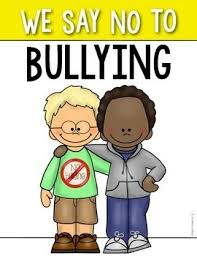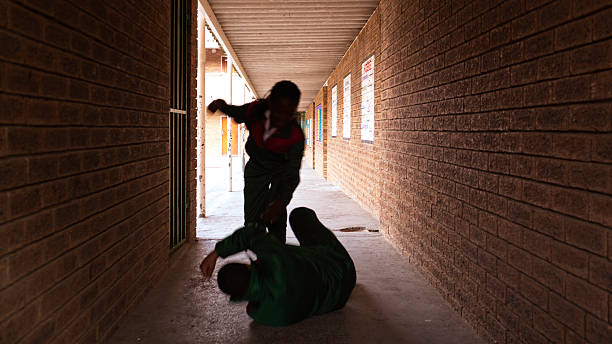Schools are generally liable for bullying within the school environments. A school environment includes the school buses on transit, excursions, a field visit, recreational facilities, a parking space, a digital environment, and other places of extra-curricular activities.
Authorities may be criminally responsible for bullying within a school environment where it is a passive bystander in a scene of the assault.
Background
Bullying in Nigeria’s secondary schools makes regular national headlines. In November 2024, Nigeria’s Federal Minister of Education suspended 13 students of Federal Government College, Enugu, who bullied and abused their fellow students.
Although some experts advocate anti-bullying policies in Nigeria, we know that the twin policies of Minimum Standards for Safe Schools 2021 and National Policy on Safety, Security and Violence-Free Schools 2021 sufficiently protect against bullying in Nigerian schools.
Enforcement and awareness, coupled with poor regulatory and compliance regimes, decrease the successes of the extant national anti-bullying policies.
For example, schools are obligated under the National Policy on Safety, Security, and Violence-Free Schools 2021 to use the morning school assembly to inculcate values of human dignity and anti-bullying frameworks to students and teachers.
Schools and parent-teacher associations or forums must periodically train students and staff on anti-bullying measures.
Yet, some schools have underutilized the morning assembly – a strategic constant repetition tool. Schools generally do not emphasize the triangular intercession between domestic violence, abuse, and bullying within the school environment.
According to ScienceDirect’, a 2016 national survey of school violence by the National Population Commission and UNICEF Nigeria reported that physical and psychological violence at home were, respectively, responsible for 85% and 50% of most school children victimization.
Interestingly, bullying rates in Nigeria’s urban and rural areas were constant at 90%. In comparison, a significant variation occurred in the regions because the southern region ranked 90%. In contrast, the northern region stayed at 70% – a 2017 report.
Bullying among adolescent victims in 2023, according to Ighaede-Edwards et al., was 51.9%, while 27.9% said they were bullies themselves.
Above all, Ighaede-Edwards et al. insisted that their finding disclosed that 75% of the bullying occurred mainly in the classrooms, and 58.3% of the bullies were classmates. We note that bullying is not an act of rite of passage into adulthood.
Meaning of Bullying in Nigeria
In our earlier commentary on Bullying, Safe Schools, and Nigeria’s Legal and Policy Framework here, we clarified that Nigeria’s anti-bullying policies defined bullying as merely repeated behaviour that intentionally inflicts injury or discomfort through physical contact, verbal attacks, or psychological manipulation.
At the same time, bullying involves an imbalance of power in favour of the bully at the expense of the bullied child. It includes the use of force, threat, coercion, abuse, intimidation, or aggressive domination of others.
Our education lawyers criticized the Policies’ definition of bullying as narrower than the globally acceptable norms, because, in Nigeria, a single aggressive action may not be bullying except if it is habitual or likely to be repeated.
We favour – but not for the love of what is foreign – the U.S. Department of Health and Human Services’ definition of bullying as “unwanted, aggressive behaviour among school-aged children that involves a real or perceived power imbalance” and “is repeated, or has the potential to be repeated, over time.”
When a School is a Passive Bystander
If 75% of bullying in Nigerian schools in 2023 occurred mainly in the classrooms and among classmates (Ighaede-Edwards et al.), where were the school authorities?
Could it have been a repeat of the biblical scene of Adam’s unaccounted-for-absence? At the same time, the serpent lured Eve into disobedience.
Or the despicable situation of the school being passive bystanders? Should bullying denigrate into assault, grievous bodily harm, or death, schools and the authorities, including a class teacher or administrator, may become passive bystanders in criminal proceedings.
The common law principle of passive bystanders is part of Nigeria’s criminal laws. Nigerian private and public schools must have well-documented anti-bullying and disciplinary procedures.
Likewise, students and staff must undergo periodic and constant training to transform them into active bystanders against bullying.
Damages and Compensations for Bullying in School Environment
Although policies do not create consumer rights, they constitute reasonable guidelines for delivering goods and services.
We submit that students, pupils, parents, and guardians are consumers of educational services under the FCCPA 2018 (Federal Competition and Consumer Protection Act).
Consumers under the FCCPA 2018 include anyone who benefits from a service or goods, including digital services or goods.
The FCCPA is Nigeria’s foremost consumer protection legislation. It overrides every other sector-specific legislation – in the event of a conflict.
Yet, the FCCPA imposes on service providers the duty to deliver comparative quality services or goods to Nigerians as their competitors in other climes.

A private or public school that plasters the “WE SAY NO TO BULLYING” poster above would be held responsible under s.123 (2) of the FCCPA 2018 as a representation to parents and students that it is intolerant to bullying.
Although judicial decisions of the U.S. Courts are persuasive, the U.S. Supreme Court judgment in Davis v. Monroe County Board of Education 526 U.S. 629 (1999) on peer harassment is insightful of the school authorities’ duty to ensure a safe school for all students.
Davis (supra), a fifth-grade girl, sued her local school board for allowing known sexual harassment by other students to continue against her. She endured continual physical and verbal harassment by one of her classmates throughout the school year.
Her classmate rubbed against her genital area and breasts and made comments about wanting to feel her boobs and get in bed with her.
Davis and her mother repeatedly complained to the school’s teachers and principal. Still, the school did nothing to stop the harassment.
The offending classmate’s guilty plea to a sexual battery ended the harassment. Still, the Supreme Court held that students subjected to peer sexual harassment may sue their school districts for damages.
If the districts “are deliberately indifferent to sexual harassment, of which they have actual knowledge, that is so severe, pervasive, and objectively offensive that it can be said to deprive the victims of access to the educational opportunities or benefits provided by the school.”
The principle of a School’s substantial control over a bully extends to bullying outside a school environment and cyberbullying. It is not enough for schools to say that it happened online outside the schooling period.
A school environment includes school buses, parking spaces, controlled transit time, a digital learning environment, a centre of extra-curricular activity, excursions, and field visits.
Parents or Students can establish liability when schools fail to respond appropriately to bullying or show deliberate indifference to a hostile educational environment.
Bryant, a U.S. high school student, successfully claimed that the district discriminated against them by permitting rampant race-based peer harassment of all African-American students.
Despite complaints by students and parents, the district did nothing to stop white male students from using offensive racial slurs and epithets, including carving “KKK” and swastikas in school furniture, placing racist notes in coloured students’ lockers and notebooks, and wearing t-shirts adorned with confederate flags, and nooses.
Even though the plaintiffs did not allege that their peers had specifically harassed them, the Court held that school administrators’ choice to sit idly by when they are aware of egregious acts of discrimination by students in their charge may subject a district to a claim for deliberate indifference to peer harassment (Bryant v. Indep. Sch. Dist. No. I-38, 334 F.3d 928, 934 (10th Cir. 2003)).
We submit that victims of bullying can successfully sue a school authority, including ministries of education in Nigeria, where evidence abounds that the authorities idly stood by while bullying occurred.
The concept of idly standing by relates to how the authorities handled the events before the bullying and not post-bullying activities, which may include suspending recalcitrant students.
In our clear view, the following exemplifies idle standby:
- Slur words, including threats carved on school facilities, which a School fails to repaint, and discipline perpetrators after complaints.
- Inciteful chants, directed at particular students, which the authorities reasonably knew but ignored.
- Discriminatory cartoons or unobjective criticisms directed at specific students or ethnic groups.
- The objectionable practice of beating up or throwing water at a birthday celebrant, which results in bodily or psychological harm.
- Circulating immodest and obscene images within the school environment
The victim or the parents can establish with documentary evidence that such practices persisted with the authorities’ knowledge.
Conclusion
You may access additional resources on Nigeria’s anti-bullying legal framework here. Bullying is a borderline criminal and civil wrong in Nigeria.
It is an assault when bullying involves physical contact with the victim. Should bullying become riotous, it snowballs into actions likely to breach public peace.
Should the victim suffer severe bodily hurt, the law views it as grievous bodily harm or grievous bodily hurt leading to death, where death occurs.
Schools are generally liable for idly standing by while victims bear the cross of this social vice. It will not be enough for the authorities to pretend that it was a mere rite of passage or that their hands were tied.
Although we are unaware of judicial authorities on bullying, judicial pronouncements on bullying will populate our judicial landscape as we advance.
Quality Education, SDGs Goal 4, cannot be achieved without a well-implemented anti-bullying policy in Nigerian schools.
SRJ Legal is an education law firm. We complement our education law practice with fintech and commercial dispute (litigation). At the same time, we provide corporate counsel services to businesses and individuals, including families.


